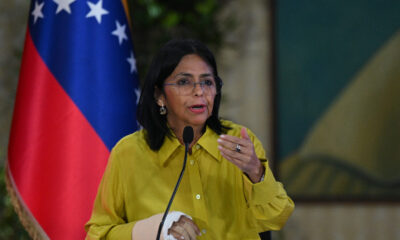Newly posted Controller of Correctional Service in Gombe State, Agada Felix-Audu, recently declared that no suspect should spend more than 180 days awaiting trial before conviction or acquittal, thereby reigniting scrutiny of Nigeria’s justice system, where over 53,000 of 81,000 inmates are still awaiting trial—some for years over petty offences, writes CHIMA AZUBUIKE
When Agada Felix-Audu, the newly posted Controller of the Correctional Service in Gombe State, declared that no suspect should spend more than 180 days awaiting trial before being either convicted or acquitted, his words reverberated beyond the conference hall. They touched the very heart of Nigeria’s criminal justice system.
For decades, Nigeria’s custodial centres have been filled not only with hardened convicts but with men and women who have not yet been found guilty of crime. Some individuals are languishing behind bars over allegations of theft of a mobile phone or issues over repayment of a N20,000 loan. Sometimes, this is because their cases were not heard promptly or because they could not “do the needful”, often demanded to expedite their files.
Felix-Audu’s pronouncement at his familiarisation visit to the Secretary to the Government of Gombe State, Prof Ibrahim Abubakar-Njodi, was both bold and simple: “Within 180 days, a suspect awaiting trial must either be convicted or acquitted, no matter the crime committed.” But is this feasible in a justice system typically plagued by delays, underfunding, corruption, and human rights violations?
Across Nigeria, the statistics paint a grim picture. According to the Nigerian Correctional Service 2024 annual report, out of approximately 77,000 inmates nationwide, more than 52,000 are awaiting trial, that is, nearly 70 per cent of the total prison population. Some inmates have been in pre-trial detention for more than five years, despite being accused of offences carrying maximum sentences of two years or less. By August 2025, the number rose to 53,460 awaiting trial, with 81,000 inmates nationwide.
In Gombe State, the situation mirrors the national crisis. The state’s five custodial centres—Gombe, Nafada, Bajoga, Cham, and Billiri—are home to thousands of inmates, the vast majority of whom are awaiting trial. Cases drag on for reasons ranging from incomplete police investigations to prosecutors deliberately inflating charges for personal gain. Courtrooms are few and under-resourced, while magistrates juggle overwhelming caseloads.
Against this background, the call for a 180-day limit feels both urgent and aspirational. For those languishing in cells, it could mean the difference between life and death, between hope and despair.
At the Gombe custodial centre, Aisha, a female inmate who was remanded pending trial, narrated her ordeal with quiet resignation. “For the time I spent there, I didn’t eat rice with stew, whether with groundnut oil or palm oil. The food lacked salt. The rice comes in small quantities—it won’t satisfy even a child.”
Her account is echoed by others across the state. Elijah, a former inmate from Plateau State who served in Gombe custodial centre, recounted how he entrusted N8,000 to prison records upon arrival.
“When he fell sick, part of the money was spent on medicine. Upon release, only N3,000 was returned. Worse still, the police officers who came to take him to court proceedings collected another N2,000,” Elijah said.
Past inmates report disturbing conditions of incarceration, including bug-ridden mattresses and poor quality of meals. They also claim that mats are hoarded by prison officials, leaving some inmates to sleep on bare floors. “Kunu, a watery millet drink, is often the only breakfast available, unless inmates can afford to buy food. Lunch might be a cup of garri, without sugar or water. Dinner is a small cup of rice shared among three people on a rubber plate.
“If you have money, you will buy water. If you don’t, you eat like that,” Peter, another inmate, explained.
A family member of one of the inmates, who identified himself as Sambo Danti, said payment at an opposite point that serves as a clearing stand is most disappointing, describing it as a conduit of corruption.
Danti said, “This reality is compounded by extortion at every level. Inmates and their families are forced to pay for services that should be free, from faster case processing to better food portions.
“You are made to pay N200 for the form before going in to see your family member. I wonder what the N200 form is for. I wonder what it will solve. But without it, you can’t gain access. Upon entry, you are made to drop all your phones for fear of incriminating evidence, but they forget that we now have other recording devices like a pen, glasses, but of course, that wasn’t my intention.
“I have seen family members who were asked to go home because they couldn’t afford an entry pass. I doubt if the money they make is remitted as revenue.”
Assistant Chief Admin Officer at the National Human Rights Commission in Gombe, Ndam Nanfa, offered a scathing assessment of corruption within custodial facilities.
Nanfa said, “How will you explain a situation where, in prison, if an inmate has N1,000 in custody, officials only release N500 and keep the rest? Imagine how much more they take when the money is bigger.”
“The rot is not confined to correctional officials,” she added.
Nanfa alleged that prosecutors also exploit families. “If a magistrate fines a suspect N5,000, prosecutors can demand N30,000 from the family, plus another N30,000 for logistics. Failure to pay lands the suspect in prison.”
“Such practices not only prolong incarceration but also reinforce the perception that justice in Nigeria is for sale. For the poor, the inability to pay means endless waiting; for the rich, it is merely another cost of doing business,” Nanfa said.
While this debate rages, what happens to inmates in Gombe, Nafada, Bajoga, Cham, and Billiri custodial centres who continue to languish in squalid conditions, surviving on meals of plain rice without stew, bug-ridden beds, and the constant shadow of extortion?
The Controller’s 180-day proposal is not an entirely new idea. The Nigerian Constitution under Section 35(4) already requires that any person arrested or detained on suspicion of committing an offence must be arraigned in court within a reasonable time, defined as one day in cases where a court is within a forty-kilometre radius, or two days otherwise.
Furthermore, the Administration of Criminal Justice Act 2015 and its state-level adaptations sought to eliminate unnecessary delays by introducing stricter timelines for trials, case management powers for judges, and provisions for non-custodial sentencing.
However, implementation remains the Achilles’ heel. Police still complain of a lack of resources, prosecutors are stretched thin, courts are congested, and the political will to enforce discipline in the system is often weak. What Felix-Audu did was to translate these lofty legal aspirations into a concrete, time-bound call: 180 days, no more.
Felix-Audu’s further suggestion of a centralised Database Management System, hosted by the Ministry of Justice, to synchronise police investigations, prosecutorial actions, and correctional records, holds promise.
He adds that by digitising case flows, accountability could improve, and inmates would no longer disappear into the cracks of paper-based bureaucracy.
“We are working to create a more responsive and efficient system. A biometric database of offenders has already been established to improve information sharing with other security agencies and to help decongest custodial centres nationwide,” Felix-Audu noted.
He emphasised that ensuring security should not always mean incarceration, but include psychological interventions such as counselling.
“Security goes beyond confinement. Rehabilitation, especially for those with minor offences, is essential to breaking the cycle of crime,” he added.
Yet, for many observers, the question is not whether the idea is desirable, but whether it is sustainable.
Models exist that Gombe could learn from. In South Africa, the Criminal Procedure Act sets clear bail and remand timelines, with strict oversight by judicial officers.
In Kenya, judicial reforms in the early 2010s introduced case-tracking systems and regular audit reviews of remand cases, leading to significant reductions in pre-trial detention.
In Ghana, the introduction of non-custodial sentencing, such as community service, has eased congestion in prisons and allowed courts to focus on more serious cases. This points to the fact that reform is possible when backed by political will, adequate funding, and institutional accountability.
Speaking recently, the Gombe State Deputy Governor, Manassah Jatau, decried the congestion and housing together of violent and non-violent offenders in custodial centres across the country.

 Politics13 hours ago
Politics13 hours ago
 Business13 hours ago
Business13 hours ago
 Lifestyle14 hours ago
Lifestyle14 hours ago
 Sports13 hours ago
Sports13 hours ago
 Lifestyle14 hours ago
Lifestyle14 hours ago
 News13 hours ago
News13 hours ago
 Lifestyle4 hours ago
Lifestyle4 hours ago
 Lifestyle3 hours ago
Lifestyle3 hours ago






























